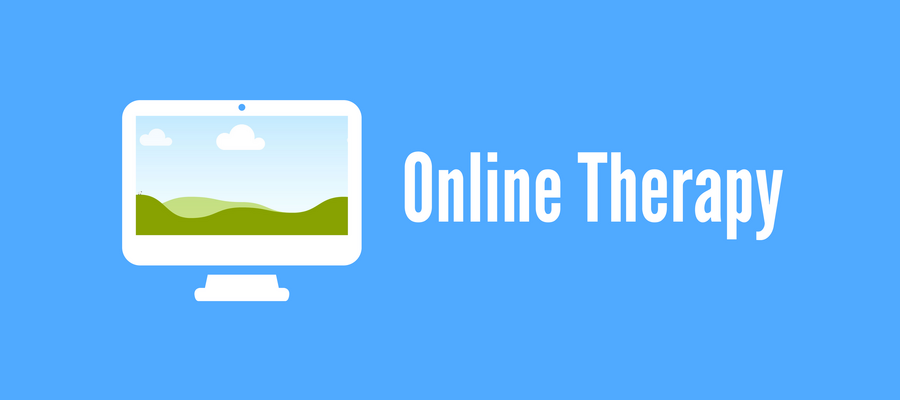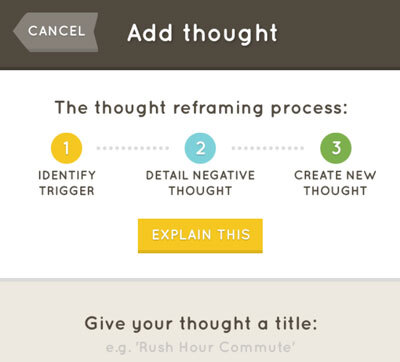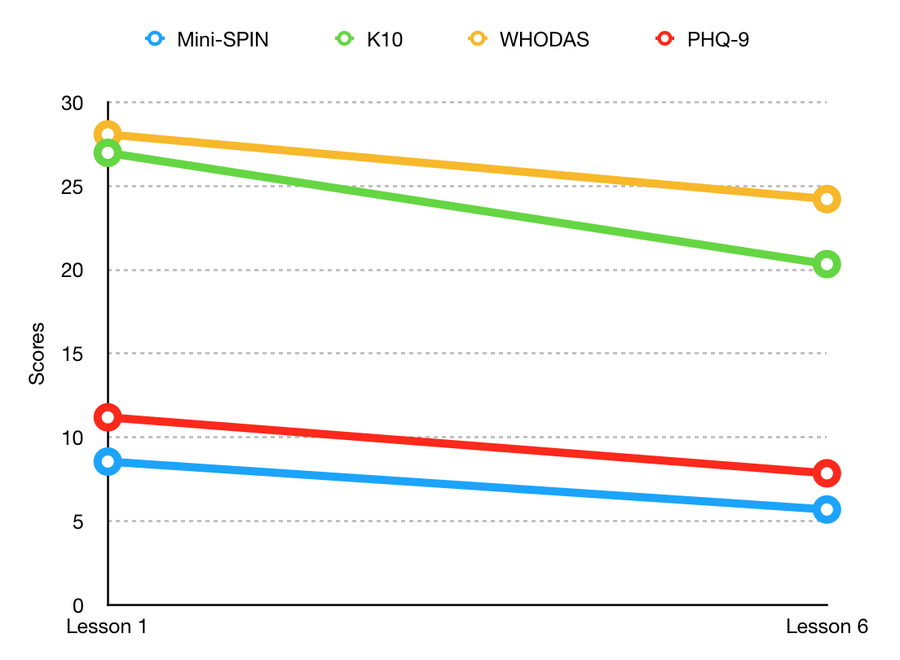
Does online therapy work?
Online therapy can be cheaper and easier to access than one-to-one therapy. But does it work? Can talking to a computer really reduce your anxiety? In this article, we will look at the evidence.
What is online therapy?
Online therapy, also known as web-based therapy, is any form of treatment delivered over the internet.
This could come in lots of different ways. Mindfulness apps could be considered a method, for example. The two dominant forms of online treatment are web-based CBT (cognitive behavioural therapy) and e-counselling (commonly referred to as Skype counselling).
In this article, we are going to look at web-based CBT.
Terminology
There are lots of different terms for online therapy.
Web-based CBT is also known as internet-based CBT (ICBT). If it is delivered with a therapist, it is referred to as "therapist-assisted". If it is done without the input of a therapist, it is referred to as "unguided".
How does CBT work?
CBT involves looking at both the cognitive and behavioural aspects of anxiety. This includes examining the thought processes we have when worrying, learning how to change out thoughts, and then going out into the world and practising these techniques.
CBT is typically delivered by a therapist in a one-to-one setting. A course of treatment may last a set number of weeks and begin by looking at the theory side and completing worksheets. This includes identifying NATs (negative automatic thoughts) and thinking errors and then learning how to correct them.
The second stage involves building a hierarchy of things that cause you to worry and then gradually exposing yourself to these situations, armed with your new coping strategies, to teach your body that it does not need to worry.
The exposure work can be done with the therapist during the sessions, or it could be set as homework.
Can it be done online?
Based on the above, there is no reason why CBT cannot be delivered online.
Many platforms exist for online learning (these are known as virtual learning environments or VLEs for short). Therefore, teaching the cognitive side of CBT should be easy to achieve.
The behavioural side is more complicated. The exposure itself cannot be done in front of a computer. But nor can it be done in a therapist's office. Therefore both rely on you doing some work outside of the therapy setting.
How does web-based CBT work?
Each implementation of web-based CBT will be different. However, you would typically expect it to work as described below.
Online lessons will explain the theory behind cognitive therapy. This could involve written text, videos to watch or audio to listen to. There may be exercises to do and quizzes to reinforce and check your knowledge.
An example of an exercise would be writing out a worry that you are having and spotting the thinking errors in it. You could then correct them with more positive language.

After this, you will progress on to building an exposure hierarchy. These are different activities that cause you anxiety, ordered in the least to most worrying. You can learn more about exposure therapy in this article.
You then go out and do the exposure therapy, and then go back to the online therapy to record your results.
You will take various assessments along the way to track your levels of anxiety. This will allow you to see if you are improving over time.
The programme may offer a coach or therapist to check in with via email, messaging or Skype. This person is someone who can offer you encouragement and answer your questions.
Disadvantages
Before we look at the good side, let's look at the disadvantages.
There is no therapist. Many people prefer to talk to someone face-to-face. While a computer can explain things to you, it cannot answer your questions when you are confused or get stuck. The therapist is likely to have years of experience that will help you get around the problems you encounter.
This can be mitigated if the programme is therapist-assisted.
No therapeutic relationship. The therapist is not just an expert. They are also a coach: they build a relationship with you and which allows you to trust them and therefore help you more effectively.
This can be done in an online context. However, it is easier to build a relationship face-to-face. Building a relationship requires the body to release oxytocin, and this does not happen effectively over a video screen.
No regular appointments. Working at your own pace means that it is easy to put it off until tomorrow. And then the day after. And then they day after.
No clinical setting. While going to a therapist's office, or a hospital, can sometimes feel intimidating, it may also help you open up faster. Putting yourself in a clinical setting helps you make the treatment feel real, which is important for giving yourself the self-belief that it will work.
Little personalisation. A good therapist will tailor the programme to your situation, existing knowledge and progress. Computer programmes can find it difficult to do this.
Poor diagnosis. Web-based tests are not as effective at diagnosing mental health issues as doctors are1. Therefore, if you start web-based CBT before getting an official diagnosis, there is a risk you will be targeting the incorrect condition: trying to fix generalised anxiety when you have OCD, for example.
Advantages
The advanced of web-based CBT include:
Convenience. You can complete the learning in your own time, at your own pace. This flexibility makes it easy to fit around your life. This is important because maintaining a routine can be beneficial for your mental health.
Can be done at home. If your anxiety is related to going outside, having to travel to a therapist's office might add an extra barrier to you getting treatment. Web-based CBT avoids that.
No therapist to talk to. Many people prefer to have a therapist to talk to. However, some people feel uncomfortable telling a stranger their darkest secrets. Talking to a web-based programme may be easier.
Cost-effective. Private therapy can be expensive. Web-based CBT is typically much cheaper.
Immediate access. If you access CBT through your healthcare provider, such as the NHS in the United Kingdom, there may be long waiting lists. ICBT is typically available much quicker.
What does the evidence say?
The evidence suggests that web-based CBT is as effective as face-to-face CBT.
In 2016, Cochrane published a meta-analysis2 comparing ICBT to traditional CBT for anxiety. They found that although the evidence quality was lacking, it suggested ICBT is as effective.
This is significant because the Cochrane Collaboration is considered a gold standard in medicine and a meta-analysis looks a lot of different studies, not just one, and then compares the overall results.
So, although the study does note that the evidence is "low to moderate quality", the standards are very high. Therefore, we can conclude that ICBT probably is effective but that more research needs to be done to confirm it.
Here is an extract from the author's conclusion:
"Therapist-supported ICBT appears to be an efficacious treatment for anxiety in adults. Future research should explore heterogeneity among studies which is reducing the quality of the evidence body, involve equivalence trials comparing ICBT and face-to-face CBT, examine the importance of the role of the therapist in ICBT, and include effectiveness trials of ICBT in real-world settings."
Depression. Another meta-analysis, published in 2016 by the journal BMC Psychiatry, looked at using ICBT for depression3. They found that it provided excellent results in the short-term, but that more research was needed to understand the long-term impact.
Here is what they concluded:
"There has been substantial evidence that iCBT intervention has a superior short-term efficacy compared to the results of control groups, while its long-term efficacy of iCBT for subthreshold depressive symptoms is inconclusive and must be examined in further research."
Social anxiety. Several studies have looked at the effectiveness of ICBT for social anxiety. A study published in 2006 found that a 9-week programme of ICBT reduced symptoms and that this reduction was still there a year later4.
Another study, published in 2015, found that ICBT was effective when delivered inside a clinical setting5. A 2014 study found that ICBT worked well when a doctor referred someone to an ICBT programme6.

Post-traumatic stress disorder (PTSD). A review of treatments for PTSD published in 2011 found that ICBT was effective7.
Health anxiety. A study published in 2011 concluded that ICBT was effective in treating health anxiety8.
Panic attacks. A study published in 2006 concluded that ICBT was effective in treating panic disorder9.
How to access online therapy
In some countries, online therapy may be available from the national healthcare provider, or your health insurance provider. In the UK, for example, some local NHS authorities provide access to web-based therapies.
However, most people may find they have to find a private provider.
We have not formally reviewed the options we list below, and therefore cannot attest to their effectiveness. You will have to use your own judgement.
Web-based CBT providers include Joyable, Learn To Live, Get Self Help, Moodgym, Overcoming Social Anxiety and Online Therapy.
What are the alternatives?
The obvious alternative to web-based therapy is face-to-face therapy.
If you feel that you would be better suited to a counselling approach, there are also many e-counselling services that allow you to do sessions over Skype or text chat.
These include PlusGuidance, Breakthrough and BetterHelp.
If you are looking for web-based help but do not want a formal programme or having a therapist to manage your treatment, you may want to consider the many online resources and mobile phone apps that are available.
If you have an iOS device, you can see our list of mobile apps for anxiety in this article.
If you would prefer to looking for other treatments, you can find our full first of treatments for anxiety in this article.
Summary
The evidence is clear that online therapy does work. Specifically, that web-based CBT (known as internet-based CBT, or ICBT for short) has been shown by many different studies to be effective.
Further research is needed to understand the long-term benefits of web-based therapy. However, the evidence so far suggests that it is very promising.
If web-based CBT doesn't float your boat, there are also a range of other options including online counselling and self-help resources.
Metadata
Published 11 December 2017. Written by Chris Worfolk.
References
-
Gerhard Andersson and Nickolai Titov. Advantages and limitations of Internet-based interventions for common mental disorders. World Psychiatry. 2014 Feb; 13(1): 4–11. ↩︎
-
Olthuis JV, Watt MC, Bailey K, Hayden JA, Stewart SH. Internet-based cognitive behavioural therapy with therapist support for anxiety in adults: a review of the evidence. The Cochrane Collaboration. 12 March 2016. Link. ↩︎
-
Zhou T, Li X, Pei Y, Gao J, Kong J. Internet-based cognitive behavioural therapy for subthreshold depression: a systematic review and meta-analysis. BMC Psychiatry. 2016 Oct 21;16(1):356. DOI: 10.1186/s12888-016-1061-9 ↩︎
-
Andersson G, Carlbring P, Holmström A, Sparthan E, Furmark T, Nilsson-Ihrfelt E, Buhrman M, Ekselius L. Internet-based self-help with therapist feedback and in vivo group exposure for social phobia: a randomized controlled trial. J Consult Clin Psychol. 2006 Aug;74(4):677-86. DOI: 10.1037/0022-006X.74.4.677 ↩︎
-
El Alaoui S, Hedman E, Kaldo V, Hesser H, Kraepelien M, Andersson E, Rück C, Andersson G, Ljótsson B, Lindefors N. Effectiveness of Internet-based cognitive-behavior therapy for social anxiety disorder in clinical psychiatry. J Consult Clin Psychol. 2015 Oct;83(5):902-14. doi: 10.1037/a0039198. Epub 2015 May 25. DOI: 10.1037/a0039198 ↩︎
-
Alishia D. Williams, Kathleen O'Moore. Elizabeth Mason, Gavin Andrews. The effectiveness of internet cognitive behaviour therapy (iCBT) for social anxiety disorder across two routine practice pathways. Internet Interventions. Volume 1, Issue 4, October 2014, Pages 225-229. DOI: https://doi.org/10.1016/j.invent.2014.11.001 ↩︎
-
Nilamadhab Kar. Cognitive behavioral therapy for the treatment of post-traumatic stress disorder: a review. Neuropsychiatr Dis Treat. 2011; 7: 167–181. doi: 10.2147/NDT.S10389 ↩︎
-
Hedman E, Andersson G, Andersson E, Ljótsson B, Rück C, Asmundson GJ, Lindefors N. Internet-based cognitive-behavioural therapy for severe health anxiety: randomised controlled trial. Br J Psychiatry. 2011 Mar;198(3):230-6. doi: 10.1192/bjp.bp.110.086843. ↩︎
-
Carlbring P, Bohman S, Brunt S, Buhrman M, Westling BE, Ekselius L, Andersson G. Remote treatment of panic disorder: a randomized trial of internet-based cognitive behavior therapy supplemented with telephone calls. Am J Psychiatry. 2006 Dec;163(12):2119-25. DOI: 10.1176/ajp.2006.163.12.2119 ↩︎